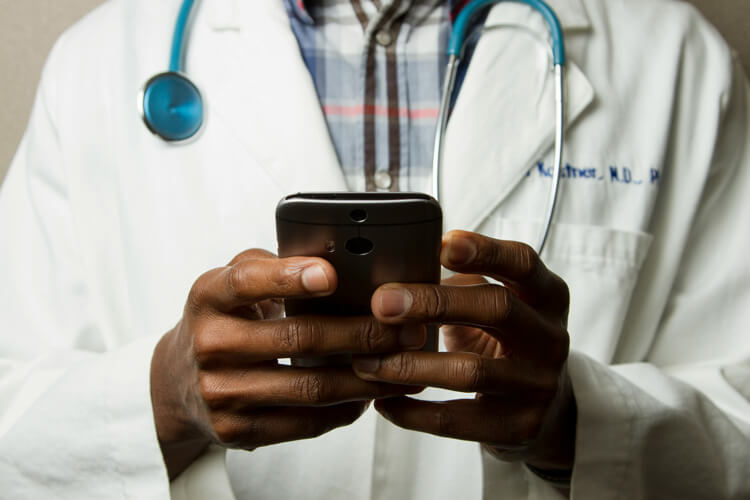
@ShahidNShah


Healthcare is evolving at a pace we’ve never seen before. What once relied heavily on manual processes and face-to-face visits is now supported by powerful technologies that improve efficiency, accuracy, and access to care.
In short, from digital records that streamline data sharing to wearable devices that empower patients at home, medical technology is no longer an optional add-on. Instead, it has become the foundation of smarter healthcare systems.
Moreover, this transformation isn’t just about innovation for the sake of it. Smarter use of technology means fewer errors, faster interventions, and more connected experiences for patients and providers alike.
That said, let’s explore it in detail in the article ahead!
The shift from paper charts to electronic health records (EHRs) is one of the most significant advances in modern healthcare. Digital systems allow providers to instantly access various documents, including:
This reduces delays and minimizes errors. When different departments and specialists can share information seamlessly, care becomes more coordinated and precise.
Beyond convenience, EHRs also support data analytics. Turns out, it enables hospitals to identify patterns, manage patient populations, and make informed decisions. For patients, this means faster diagnoses and a smoother overall experience.
All in all, the ability to connect and integrate data across healthcare systems highlights how digital records are much more than a technical tool. Besides, they are the backbone of smart, connected care.
Along with the hospital premises, technology is empowering patients in their everyday lives. Wearable devices and connected monitors give individuals greater control over managing their health. For people living with chronic conditions, this independence makes treatment less overwhelming and more sustainable.
Moreover, access to technology plays a critical role here. Reliable suppliers make sure patients get the tools they need consistently and conveniently. For example, Byram Healthcare’s online medical supplies help patients stay connected to essential products without leaving their homes.
This accessibility ensures several benefits to the patients, including:
Ultimately, by combining modern devices with dependable supply chains, technology strengthens the bond between patients and providers while making care more patient-centered.
Remote patient monitoring has redefined chronic care management. Devices that track blood pressure, glucose levels, or oxygen levels now transmit information directly to healthcare providers. This real-time connection means providers can intervene before issues escalate, improving outcomes and reducing hospital visits.
Telehealth platforms build on this connectivity by extending care to rural or underserved areas. A patient can consult a doctor from home, saving travel time and costs while ensuring continuity of care. During the pandemic, telehealth became a lifeline. It proves that technology isn’t just convenient but essential.
Ultimately, together, remote monitoring and virtual consultations create smarter, more responsive healthcare systems that bring providers and patients closer than ever before.
Artificial intelligence (AI), robotics, and advanced analytics are pushing healthcare into the future. AI can scan imaging results with remarkable accuracy, often detecting early signs of diseases that human eyes might miss. Robotics enables surgeons to perform minimally invasive procedures with greater precision. Thus, leading to shorter recovery times and fewer complications.
But the real power lies in how these technologies connect within the broader healthcare ecosystem. Hospitals can use predictive analytics to anticipate patient surges, while connected platforms ensure patients at home remain linked to their providers. This creates a seamless loop of communication and care.
Ultimately, by blending innovation with integration, technology doesn’t just improve outcomes—it builds the smarter, connected healthcare systems we need for the future.
As healthcare becomes more digital, safeguarding sensitive information is a top priority. Every click, scan, and remote consultation involves patient data that must remain private and secure. Breaches not only compromise trust but can also disrupt entire healthcare systems.
Modern medical technology addresses this challenge with:
Hospitals and clinics are investing heavily in secure platforms that protect electronic health records and telehealth sessions from cyber threats.
By building stronger defenses, healthcare systems ensure patients can embrace new technologies without fear. In smarter healthcare environments, security is not an afterthought — it is the foundation that keeps innovation safe and sustainable.
Medical technology is no longer optional; it is the backbone of healthcare systems that aspire to be smarter, safer, and more patient-focused. Digital records improve coordination, remote tools expand access, connected devices empower patients, and advanced innovations transform care delivery.
With reliable partners and access points, technology is not just shaping hospitals but also reaching directly into patients’ homes. This connection ensures that care is continuous, efficient, and accessible.

Mental health care is undergoing a remarkable transformation. Thanks to digital platforms and remote care solutions, accessing support has never been easier or more convenient. Whether due to …
Posted Sep 18, 2025 Mental Health
Connecting innovation decision makers to authoritative information, institutions, people and insights.
Medigy accurately delivers healthcare and technology information, news and insight from around the world.
Medigy surfaces the world's best crowdsourced health tech offerings with social interactions and peer reviews.
© 2026 Netspective Foundation, Inc. All Rights Reserved.
Built on Feb 20, 2026 at 3:27pm